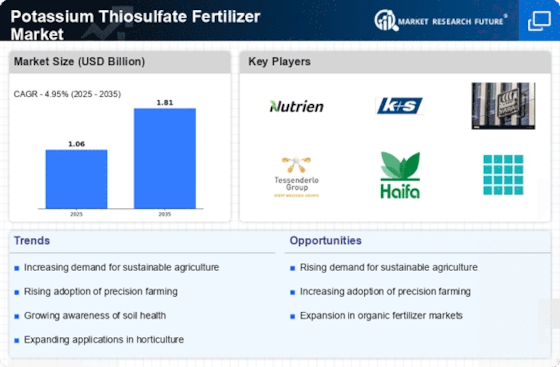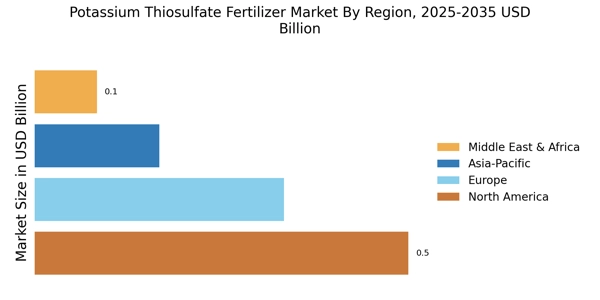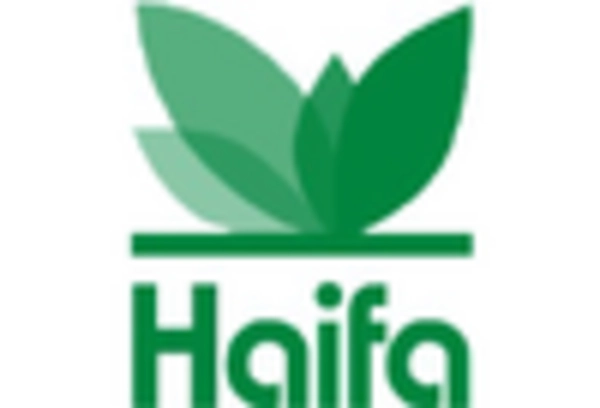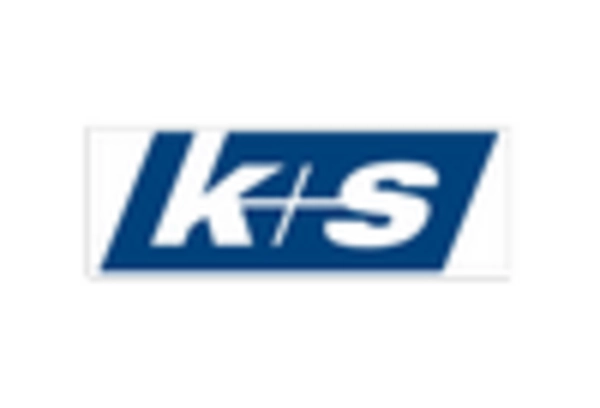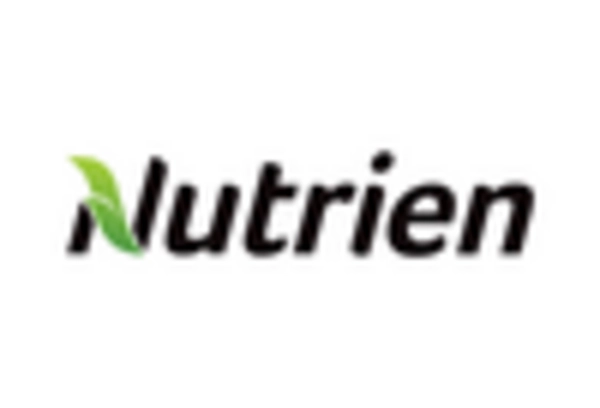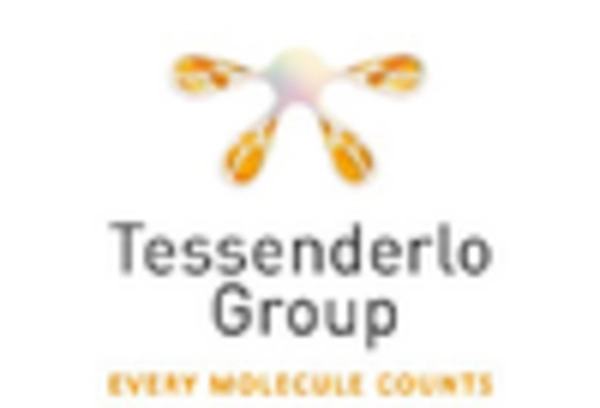Shift Towards Organic Farming
The Potassium Thiosulfate Fertilizer Market is witnessing a shift towards organic farming practices, which is reshaping the fertilizer landscape. As consumers increasingly demand organic produce, farmers are compelled to adopt organic farming methods that often require the use of natural fertilizers. Potassium thiosulfate, being a more environmentally friendly option, aligns well with organic farming principles. It provides essential nutrients without the harmful effects associated with synthetic fertilizers. Market data suggests that the organic farming sector is expanding rapidly, with an annual growth rate of around 10%. This trend presents a significant opportunity for the Potassium Thiosulfate Fertilizer Market to position itself as a key player in the organic fertilizer segment.
Rising Demand for Specialty Crops
The Potassium Thiosulfate Fertilizer Market is experiencing a notable increase in demand for specialty crops, which require specific nutrient profiles for optimal growth. As farmers shift towards cultivating high-value crops such as fruits, vegetables, and ornamental plants, the need for specialized fertilizers like potassium thiosulfate becomes more pronounced. This fertilizer not only provides potassium but also sulfur, which is essential for the synthesis of amino acids and proteins in plants. According to recent agricultural reports, the market for specialty crops is projected to grow at a compound annual growth rate of approximately 5% over the next few years. This trend indicates a robust opportunity for the Potassium Thiosulfate Fertilizer Market to expand its reach and cater to the evolving needs of farmers seeking to enhance crop quality and yield.
Increased Awareness of Soil Health
There is a growing awareness among farmers and agricultural stakeholders regarding the importance of soil health, which is significantly influencing the Potassium Thiosulfate Fertilizer Market. Healthy soil is crucial for sustainable agricultural practices, and potassium thiosulfate plays a vital role in improving soil structure and nutrient availability. This fertilizer aids in the prevention of soil degradation and enhances microbial activity, which is essential for nutrient cycling. Recent studies indicate that the adoption of potassium thiosulfate can lead to improved soil fertility and crop productivity. As more farmers recognize the benefits of maintaining soil health, the demand for potassium thiosulfate fertilizers is likely to increase, thereby driving growth in the Potassium Thiosulfate Fertilizer Market.
Regulatory Support for Sustainable Fertilizers
The Potassium Thiosulfate Fertilizer Market is benefiting from regulatory support aimed at promoting sustainable agricultural practices. Governments and agricultural bodies are increasingly implementing policies that encourage the use of eco-friendly fertilizers, including potassium thiosulfate. These regulations are designed to reduce the environmental impact of conventional fertilizers and promote sustainable farming methods. As a result, farmers are more inclined to adopt potassium thiosulfate as a viable alternative. Recent legislative measures have been introduced in various regions to incentivize the use of sustainable fertilizers, which is likely to bolster the growth of the Potassium Thiosulfate Fertilizer Market. This regulatory environment creates a favorable landscape for the adoption of potassium thiosulfate fertilizers.
Technological Innovations in Fertilizer Application
Technological advancements in fertilizer application methods are significantly impacting the Potassium Thiosulfate Fertilizer Market. Innovations such as precision agriculture and smart farming techniques enable farmers to apply fertilizers more efficiently, optimizing nutrient use and minimizing waste. These technologies allow for targeted application of potassium thiosulfate, ensuring that crops receive the right amount of nutrients at the right time. As farmers increasingly adopt these technologies, the demand for potassium thiosulfate fertilizers is expected to rise. Reports indicate that the precision agriculture market is projected to grow at a CAGR of 12% over the next five years, suggesting a favorable environment for the Potassium Thiosulfate Fertilizer Market to thrive.


